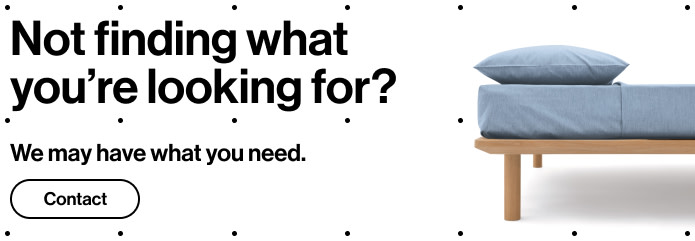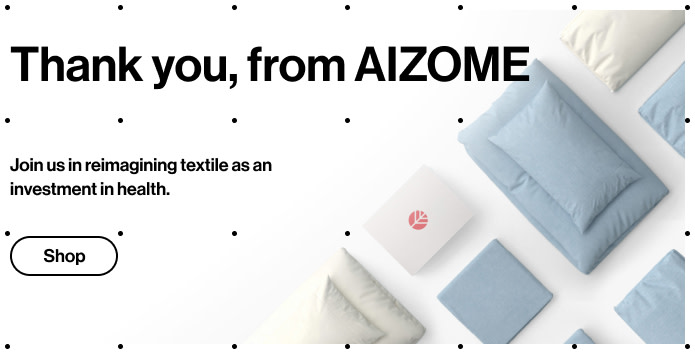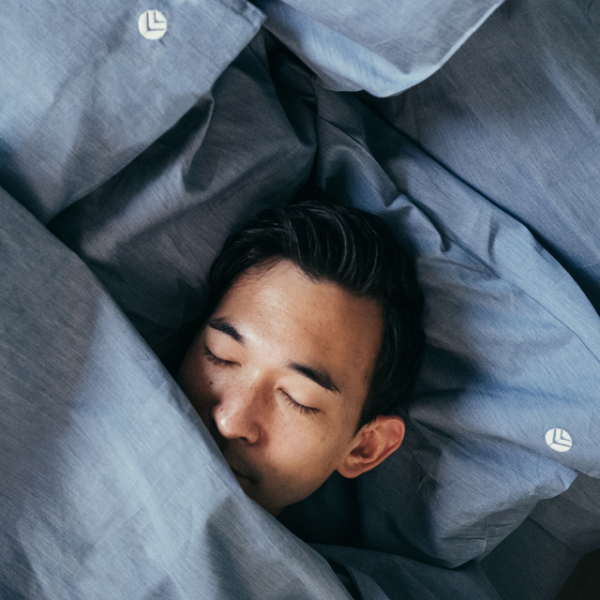
More organic than organic bedding, more antibacterial than silver, more natural than bamboo. AIZOME
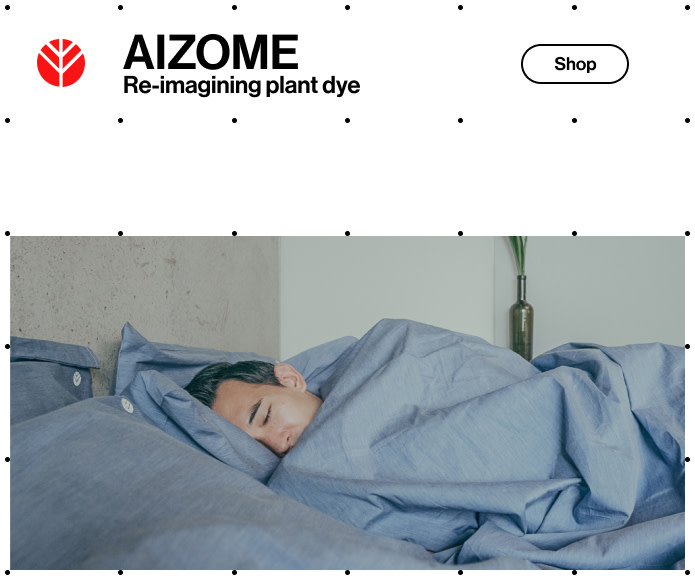
In truth, when this all started, we’d set out to make the best sheets for humans suffering from skin conditions. By accident, it seems we ended up making some of the best sheets for the environment, too. But of course, right? Because our health and the health of the planet are inseparable.
- Hypoallergenic and Antibacterial
- Skin-soothing dye properties and sateen weave
- Durable (color does not fade or bleed in the wash)
- Zero chemicals, produced responsibly
- National Eczema Association Seal of Approval
- Good for the planet

Your path to better sleep and better health starts HERE.
Dye components in our clothing and home textiles — absorbed through our skin directly into our bodies — have almost exclusively been made from petroleum byproducts and chemicals linked to cancer, skin irritation, harm to reproductive health, and neurological damage.
AIZOME sheets are radically different.
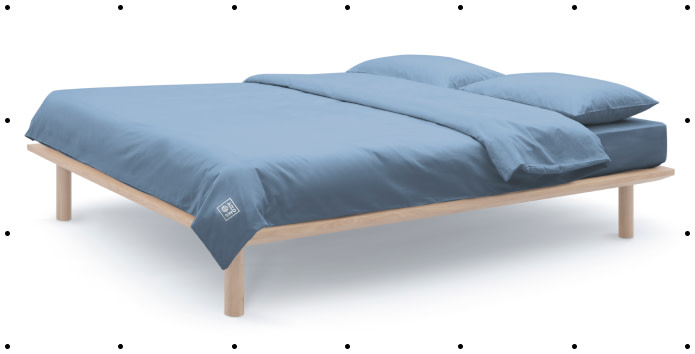
We use only 100% GOTS-certified organic cotton, medicinal plants for dye, and water — and our unique ultrasonic technology + the beauty and intelligence of the natural world = the best night’s sleep you may ever find.
- Our sheets are more organic than organic.
- More antibacterial than silver.
- More natural than bamboo.
Don’t believe us? Read on to find out why.
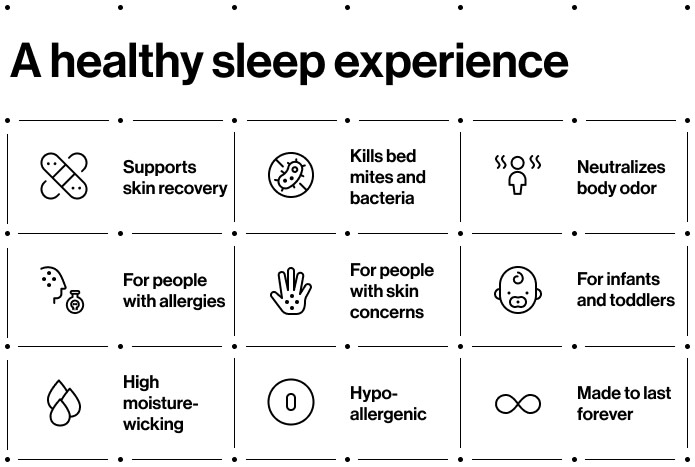
Sheets that are good for your health? What are we even talking about??
Do you know what chemical dyes are in your sheets right now?
The fabric rubbing against your skin — your largest organ — could contain anything from carcinogens to neurotoxins to formaldehyde.
Even “organic textiles’’ may contain hidden synthetics, whether in the form of “low-impact dyes” or finishing agents.
But AIZOME sheets contain zero synthetic ingredients or chemicals and are recognized by the National Eczema Association (NEA) as a product that provides benefits for people with eczema and sensitive skin.
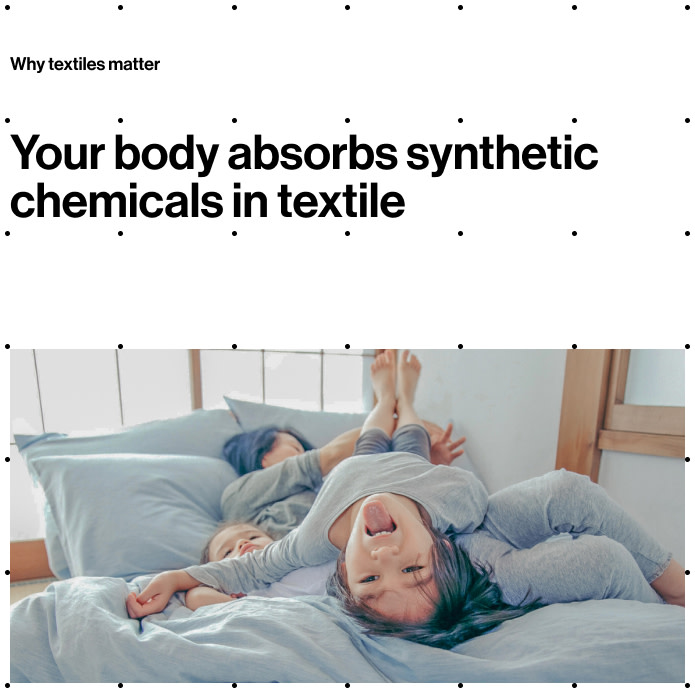
In ancient Japan, samurai warriors used to dye their clothes with indigo because they’d learned that the skin-healing properties in indigo would help to protect wounded skin. Thanks to researchers from Cambridge University, modern science now understands why indigo dye is extraordinary for wound care, with none of the side effects of topical steroids.

We submitted our sheets for a Kaken Antibacterial test (see graph) which proved that AIZOME sheets actively reduced an inoculated bacteria population by 70%, nearly three times the rate of leading antibacterial sheets. This indicates that the cutting-edge ultrasonic dyeing process preserves the medicinal properties in our indigo dye, particularly Tryptanthrin, which we tested independently to confirm in our dye.
Aaaaaand then, just to be sure, we completed a “Human Repeat Insult Patch Test” (HRIPT) test, in which 50 participants had AIZOME fabric swatches applied directly to their skin for a period of 3 weeks. Tested under the control of a dermatologist, AIZOME bedding “produced no signs of cutaneous irritation nor of skin sensitization.”

AIZOME’s incredible story began 5 years ago – right here on Indiegogo. Today we have filed patents for our incredible, ground-breaking dyeing process and are selling across the globe.

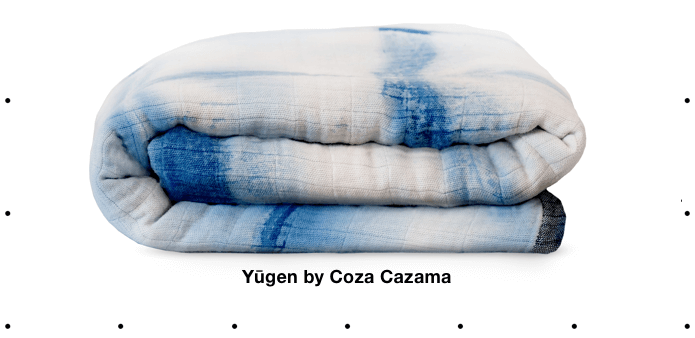
To honor our roots in the ancient tradition of hand-crafted, indigo-dyed textile, we partnered with one of the last living traditional indigo dyers in Japan, Cozo Cazama, to offer, exclusively for Indiegogo, 16 one-of-a-kind, beautiful bed throws, infused with the enduring legacy of Japan’s indigo dyeing tradition, passed down from artisan to artisan for over 400 years.
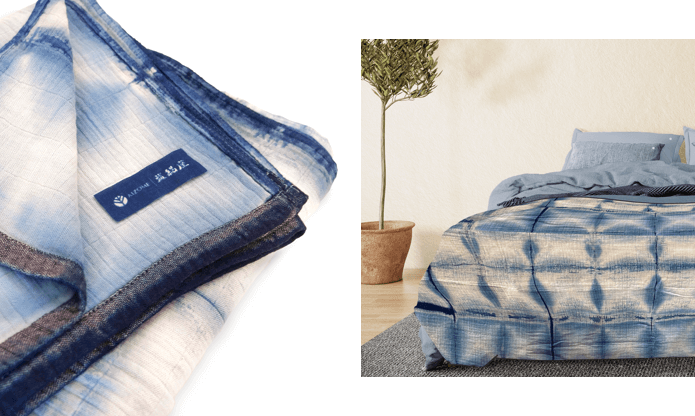

Wabi Sabi, the appreciation of simplicity and imperfection, is reflected in the unique patterns and variations found in each hand-dyed piece.*
Mottainai, the concept of not wasting resources, is embodied in the sustainable use of natural materials and the careful preservation of traditional dyeing methods.*
Omoiyari, the empathy and consideration for others, is reflected in the deep respect and care that imbues each creation.*

The creation of a single, hand-crafted aizome-dyed textile requires over a year of cultivation and care. The result evokes a sense of beauty and connection, dissolving the boundaries between past and present, nature and human.

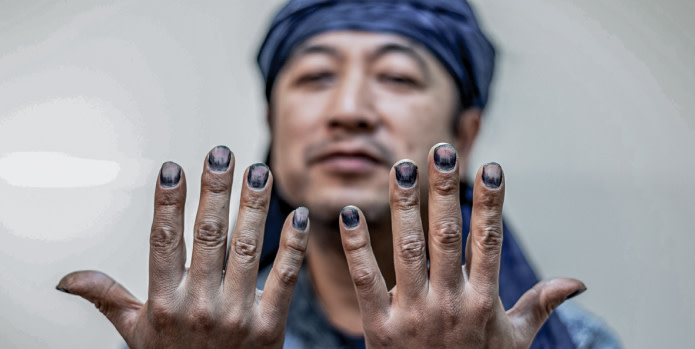
“To master the art of aizome, one is required to observe and learn from nature, and also to respect nature’s ways. In our age where everything is changing fast, I think it is important to be reminded that we humans are part of the natural world. Feeling the identity of being a part of the natural world, this is what aizome is to me.”
– Cozo Cazama
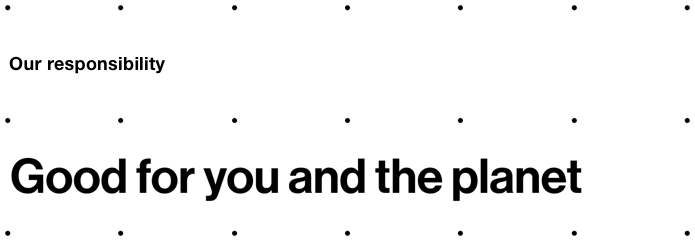
The skin is not a barrier; it is the largest organ of your body. It absorbs a huge amount of what it touches. There are thousands of chemicals used in the manufacturing and dyeing of textiles. Many of these chemicals make fabrics softer, wrinkle-free, flame retardant, or stain resistant, or they allow higher color uptake. But the trade-off for these soft, vibrant, wrinkle-free, water-resistant products is severe. PFAS, Azo dyes, flame retardants, formaldehyde, dioxins, biocides and heavy metals in textile are granted intimate access to our skin and, through industrial wastewater and household laundry, our water supplies.

The global textile industry churns out millions of tons of products annually. 80% of those products are petrochemical-based, such as the non-biodegradable polyester fabrics that can be found in most athletic clothes. But the part almost no one talks about: the majority of commercially-used textile dye is made from oil, tar, heavy metals, and toxic chemicals. And what’s really scary is that current industry standards do not require dye manufacturers to transparently report the chemicals in their dyes. Even ‘organic’ products have been found to contain synthetic and chemical-laden colors or finishing agents.

Inspired by ancient Japanese craftsmanship and holistic wisdom, our technology infuses soft, 100% GOTS certified organic cotton with the pigment and properties of medicinal plants, creating fabric that soothes irritated skin: no pesticides, no synthetics, no petrochemicals. And in addition to using natural indigo and organic cotton, our production requires significantly less water than most synthetically-dyed textiles, and our ‘waste-water’ is so pure that it has been used as organic fertilizer, and even skin care!

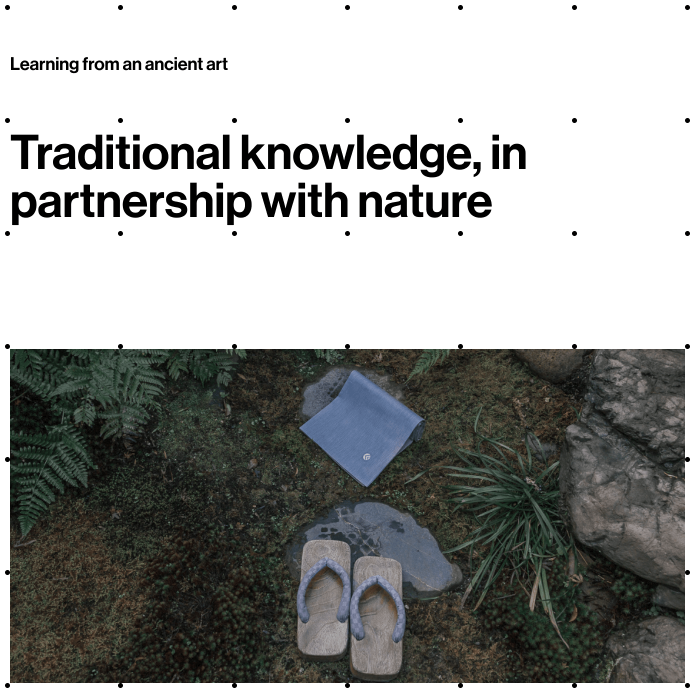
Our vision to create purely plant-based fabrics of exceptional quality is rooted in Omoiyari – the Japanese concept of honoring our relationship to all things.
Omoiyari – 思いやり- consideration; to anticipate the needs of others with empathy and thoughtful awareness.
Omoiyari anchors our decision-making in intentionality, as humans and as a business. At AIZOME, we nurture a radical belief in possibility, rooted in respect for tradition, nature, and one another.
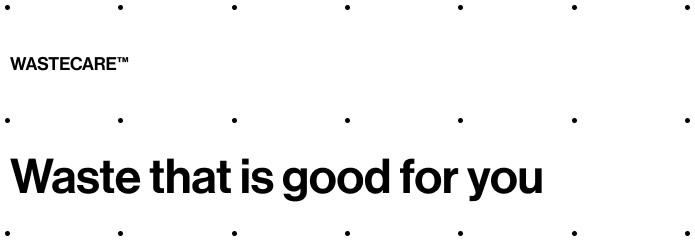
Simplicity can be radical. Our sheets are made from organic cotton, water, and medicinal herbs. Of these ingredients, all are good for your skin and are completely biodegradable. While chemical dyes are widely recognized to cause devastating effects on the environment and factory workers, our dyes produce zero toxic waste. In fact, our waste is so clean, we can sell it as skin care.

WASTECARE™ is the first skincare product that is actually made from industrial waste. Taken directly from our textile dyeing factory, the wastewater has been tested and certified according to strict eco-toxicological and cosmetic safety standards.
The first edition of WASTECARE™ was shipped out to key opinion leaders and potential collaborators in fashion, textile, and healthcare. The goal with the campaign is to reach designers, producers, and decision makers, and join forces to make the industry more sustainable.
A single limited-edition WASTECARE™ will be available for purchase in this Indiegogo drop!
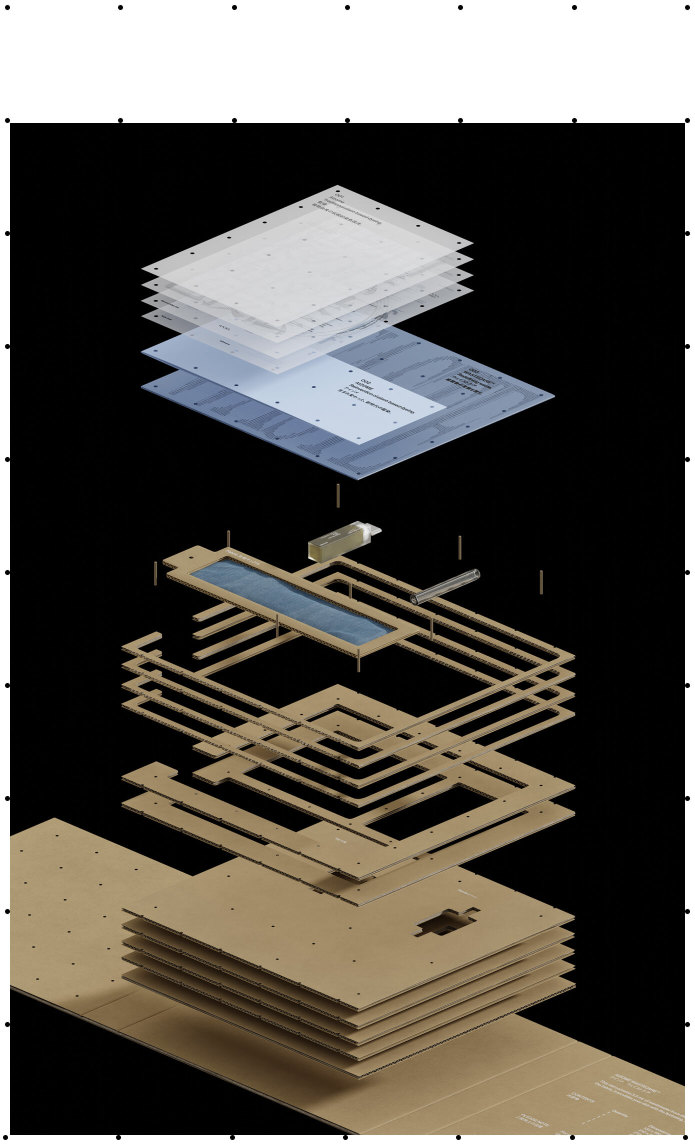
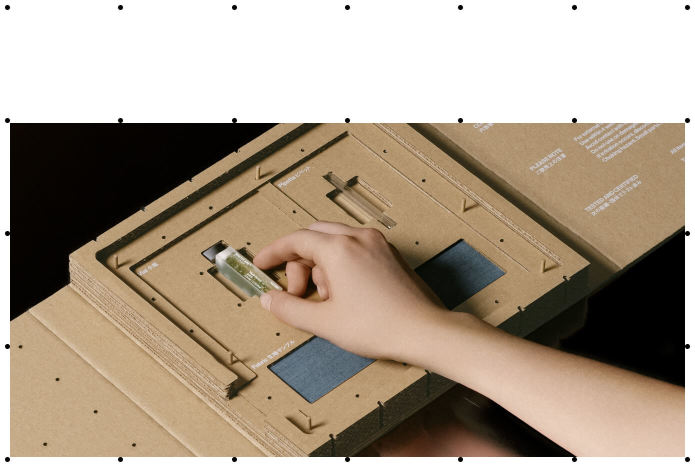
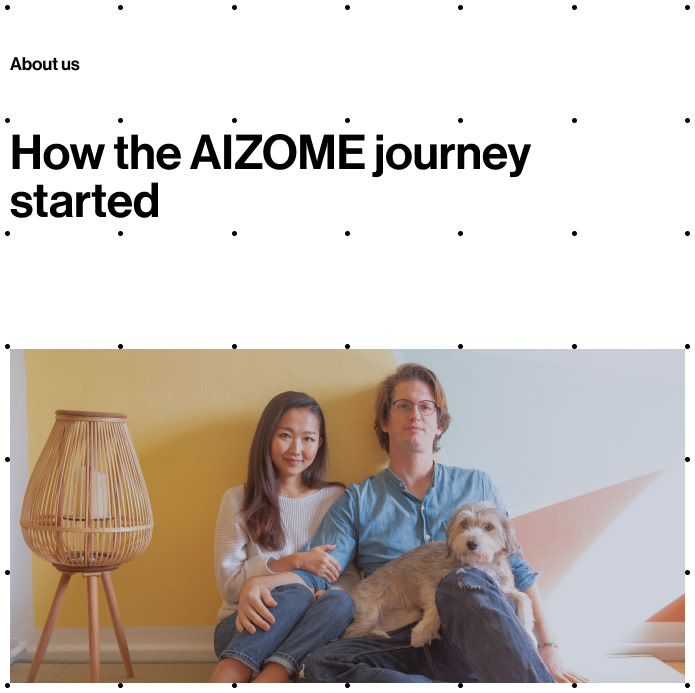
When the mother of our co-founder, Michel, was diagnosed with cancer, treatments caused her skin to become extremely sensitive. As she spent more and more time in bed, unrelenting skin irritation led to tremendous discomfort. A doctor explained that the source of her irritation was likely the dark, synthetic dye in her bed sheets; her weakened immune system could no longer protect her skin from the harsh chemicals embedded in the fibers. Switching her sheets to undyed textile significantly decreased her skin irritation, offering her a bit more comfort along her journey with terminal illness.
Michel was struck by the impact textile had upon his mother’s quality of life. Driven to learn more, he and his partner (and AIZOME co-founder) Misa began to ask questions, but pulling at the metaphorical threads of the textile industry revealed an alarming lack of transparency that hid substantial environmental and human harm.
This is why we are so passionate about what we do. From seed to sheet, we make it our mission to create products that are good for our customers, our employees, and the planet we all share.

Note for pillowcase sizes in sets: Standard size pillowcases in Twin, Full and Queen sets; King size pillowcases in King and Cal King sets.
If you have questions regarding sizing we’d be happy to assist you. Contact us via hello@aizome-textiles.com or hallo@aizome-textiles.com (for German support).








